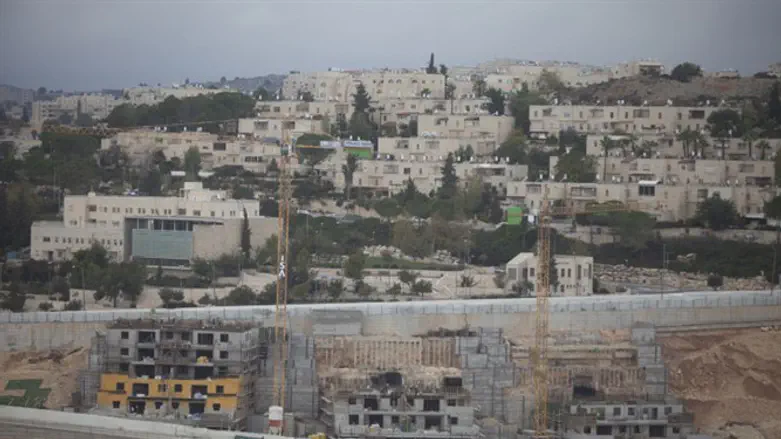
He stood at my living room picture window on his first trip from Canada to our home, gazing at the beautiful panoramic view it afforded of Jerusalem and the verdant valley separating our neighborhood from the growing city. Tears streamed down his face as he said "now I understand, now I understand."
And then he explained.
My learned brother-in-law, Mordechai z"l (whose yahrzeit is on the 4th of Iyar, IDF Memorial Day) - or as my late father called him "Mordcheh"- the person standing at my window, was a soft spoken, gentle and sensitive man who had spent the years of the Second World War in Shanghai, China and was now a businessman in Canada who learned Torah every spare minute and raised a G-d fearing, loving family.
By now, a good many books and films have been written and produced about the encapsulated aspect of Holocaust history that took place in China, where thousands of Jews found refuge, among them Mordechai's parents and their son and daughter and where they were completely cut off from news about the horror of what was happening to the Jews in Europe.
Anyone who had passage on a ship could leave Europe in the early days. The problem, as ever, was where Jews would be allowed to disembark and Shanghai was one of the few, if never before considered, places that accepted the fleeing refugees. That, too, is a story worth reading about. Conditions were far from easy, but a haven it was, and he often told me picturesque stories about life in the Chinese city where, as he said with wry humor, if the watermelon in the market was heavy, it was probably because water – not sterile, to put it mildly – had been injected into it.
In early 1941, seizing the opportunity to escape, the rabbis and students of the Mir Yeshiva who had already left their original location (a miraculous story in itself) , traveled as a group across the Soviet Union to Japan and also went on to Shanghai, where they spent the war years without contact with European Jewry. Due to this extreme move, however, Mir was the only eastern European yeshiva to survive the Holocaust intact.
"I, a young bachur (man), went to the Roshei Yeshiva, was accepted and learned there through the war years. It was the formative experience of my entire life – as a yeshiva should be – but a very special one, because we were all very close and I was exposed daily to the great minds and deep faith of the Torah luminaries there, such as Rav Chaim Shmulevich, zt"l.
"And then the war ended," he continued. "And a few days later, someone burst into the dedication of a new synagogue which we were attending (the yeshiva itself studied in the Beth Aharon Synagogue built by a wealthy Sephardic Jew, as that community warmly welcomed its students) and shouted that millions of Jews had been murdered by the Nazis in Europe."
I don't remember the exact words Mordechai told us that person had used or how much he was able to tell in those few electrifying minutes, but Mordechai said that total silence fell in the ordinarily noisy Beit Midrash.
"No one could get out a word, the shock was so great. Utter silence. You could have heard a pin drop.
"And then, the Amshiniver Rebbe, who was with the yeshiva throughout the war, stepped up to the Bima and said three words: "Vechiper admaso amo."
Those three words, a cryptic expression taken from Moses' words in Haazinu (Deuteronomy 32, 43) are written at the end of a verse which promises: For He will avenge the blood of His servants, inflict revenge upon His adversaries.
Vechiper (will appease, will give comfort in this context) admaso (His land) amo (His people) is understood in various ways because there is no conjunction between the words admaso (His land) and amo (His people) leaving the phrase open to interpretation.
Rashi wrote that Vechiper admaso [ve]amo means He will give comfort to His land [and] His people.and adds that when the people are comforted the land is as well.
However, it can also be interpreted as Vechiper admaso [et] amo, His land is what will give comfort [to] His people.
"The Rebbe did not say the entire verse, but we knew it ourselves. We did not understand why he did not speak of G-d's vengeance, but only of the land and its people..
"The Rebbe was telling us that the return to the land will comfort our people," he said, looking again at the beautiful vista of the Holy City and its new neighborhoods, filled with thriving Jewish life, with young families and their happy children' "and I didn't understand."
"But now I understand, now I understand," he said, joy shining through his tears.
The Amshiniver Rebbe brought his hassidim to Israel and rebuilt his congregation in the re-established Jewish state. And today the house of Israel mourns its fallen while the joy of the return to its land and the willingness of its young men to fight for it and avenge the years of spilt Jewish blood grants our people comfort, as Hashem promised in Haazinu.
From Holocaust Remembrance Day to IDF Memorial Day for Soldiers and Terror Victims to Independence Day, one long unbroken chain of faith, trials and rebirth.
